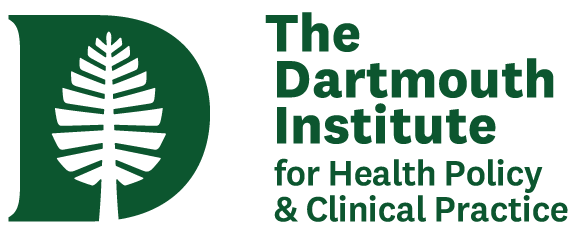Bio
A leading healthcare researcher and advocate for improving health system performance, Elliott Fisher is a professor of Medicine, Community and Family Medicine and Health Policy at The Dartmouth Institute and the Geisel School of Medicine.
In his early work, Fisher explored the causes and consequences of the dramatic differences in healthcare spending and utilization across the country, research which led him to the conclusion that the United States was wasting a substantial portion of spending on avoidable and potentially harmful care. The landmark research was cited by Peter R. Orszag as President Barack Obama’s administration crafted the Patient Protection and Affordable Care Act.
Fisher was one of the originators of the concept of “accountable care organizations” (ACOs) and worked with colleagues to carry out the research that led to their inclusion in the Affordable Care Act. His current research is exploring how physician practices, hospitals and integrated delivery systems have adopted innovations in payment and delivery and their impact on patient care. He has published over 200 research articles and commentaries and is a member of the Institute of Medicine. His research and opinions have appeared in multiple national media outlets, including The New York Times and 60 Minutes.
Fisher is a strong supporter of locally organized, financed and operated community health collaboratives and is a co-founder of ReThink Health. As the flagship initiative of The Rippel Foundation, ReThink is dedicated to accelerating health system reform and was founded on the provocative theory that because both health and health care are locally produced, communities themselves can and should be key agents of reform.
He earned a BA from Harvard College, a MD from Harvard Medical School, and a MPH from the University of Washington.
Published Research
Telehealth Trends and Hypertension Management Among Rural and Medicaid Patients After COVID-19.
Mackwood M, Pashchenko O, Leggett C, Fontanet C, Skinner J, Fisher E
Telemed J E Health|2024 Mar 8
Ganguli I, Mackwood MB, Yang CW, Crawford M, Mulligan KL, O'Malley AJ, Fisher ES, Morden NE
BMJ|2023 Oct 25
Chant ED, Crawford M, Yang CW, Fisher ES, Morden NE, Ganguli I
JAMA Netw Open|2023 Sep 5
Ganguli I, Crawford ML, Usadi B, Mulligan KL, O'Malley AJ, Yang CW, Fisher ES, Morden NE
Health Aff (Millwood)|2023 Aug
A 'COVID Compass' for navigating the pandemic.
Oliver BJ, Schmidt P, Tomlin S, Kraft SA, Fisher E, Nelson EC
Int J Qual Health Care|2021 Nov 29
Courses Taught
PH 132:
Enhancing Communication and Teamwork
(1)
Conflict is inevitable – we negotiate our differences every day, whether we are public health practitioners, clinicians, administrators or researchers. Working effectively in public health and health care depends on our ability to manage conflict effectively, learn how to understand others’ perspectives and interests, and both give and receive feedback. If poorly managed or avoided, conflict reduces productivity, undermines trust and leads to worse outcomes. If viewed as an opportunity to explore the concerns and different perspectives that others may have, working through these differences can enable individuals and teams to come up with better solutions and work more effectively. This elective will teach you the basic principles and skills of how to engage effectively with differences and conflicts, understand the strengths and weaknesses of how you tend to approach conflict in your life, and provide you a framework for thinking about both communication and negotiation. You will have the opportunity to practice negotiating a job offer.
We will have a very active learning environment with exercises and simulations done in pairs and small groups, in addition to brief didactics and discussions. You will receive individual coaching and regular feedback.
Prerequisites: None
Media
15-Feb-2017
Bundled Payments Don't Drive Up Hip and Knee Replacement Volumes
HealthLeaders Media
26-Jan-2017
Baker's Health Price Cap Plan May Be Seen As A Hybrid Between A Free And Regulated Market
90.9 WBUR

